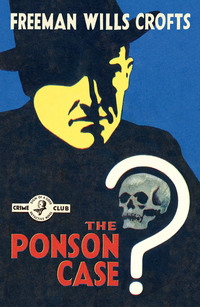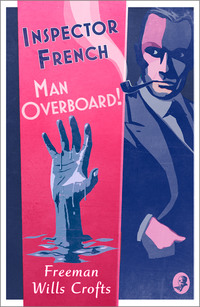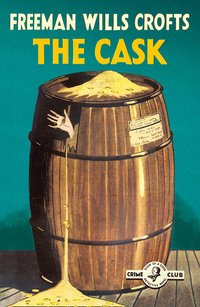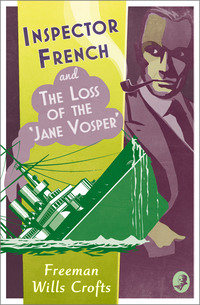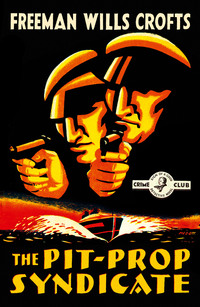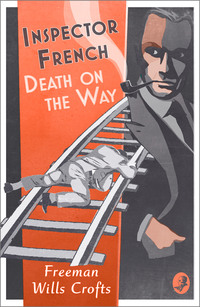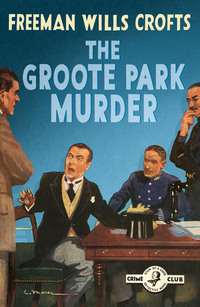
Полная версия
The Pit Prop Syndicate


Titel: The Pit Prop Syndicate
von William Shakespeare, H. G. Wells, Henry Van Dyke, Thomas Carlyle, Oscar Wilde, Joseph Conrad, Henry James, Anthony Hope, Henry Fielding, Giraldus Cambrensis, Daniel Defoe, Grammaticus Saxo, Edgar Rice Burroughs, Hugh Lofting, Agatha Christie, Sinclair Lewis, Eugène Brieux, Upton Sinclair, Booth Tarkington, Sax Rohmer, Jack London, Anna Katharine Green, Sara Jeannette Duncan, Xenophon, Alexandre Dumas père, John William Draper, Alice Christiana Thompson Meynell, Bram Stoker, Honoré de Balzac, William Congreve, Louis de Rougemont, Nikolai Vasilievich Gogol, Rolf Boldrewood, François Rabelais, Lysander Spooner, B. M. Bower, Henry Rider Haggard, William Hickling Prescott, Lafcadio Hearn, Robert Herrick, Jane Austen, Mark Twain, Mary Roberts Rinehart, Charles Babbage, Kate Douglas Smith Wiggin, Frank L. Packard, George Meredith, John Merle Coulter, Irvin S. Cobb, Edwin Mims, John Tyndall, Various, Charles Darwin, Sidney Lanier, Henry Lawson, Niccolò Machiavelli, George W. Crile, Théophile Gautier, Noah Brooks, James Thomson, Zane Grey, J. M. Synge, Virginia Woolf, Conrad Aiken, Edna St. Vincent Millay, Helen Cody Wetmore, Ayn Rand, Sir Thomas Malory, Gustave Flaubert, Edmond Rostand, Charlotte Brontë, Edith Wharton, Giles Lytton Strachey, Myrtle Reed, Ernest Bramah, Jules Verne, H. L. Mencken, H. Stanley Redgrove, Victor Lefebure, Edna Lyall, John Masefield, Charles Kingsley, Robert Burns, Edgar Lee Masters, Victor [pseud.] Appleton, Ellis Parker Butler, Mary Lamb, Charles Lamb, Johann Wolfgang von Goethe, Kenneth Grahame, Charles Dickens, John Ruskin, John Galt, James J. Davis, Owen Wister, William Blades, Sir Hall Caine, Sir Max Beerbohm, Baron Edward John Moreton Drax Plunkett Dunsany, Bret Harte, E. Phillips Oppenheim, Thomas Henry Huxley, A. B. Paterson, John N. Reynolds, Walter Dill Scott, Hans Gustav Adolf Gross, T. S. Eliot, Walt Whitman, Arthur Ransome, Jane Addams, Elizabeth, David Lindsay, Helen Bannerman, Charles A. Oliver, J. M. Barrie, Robert F. Murray, Andrew Lang, Jerome K. Jerome, Francis Thompson, Sydney Waterlow, Andrew Dickson White, Benjamin N. Cardozo, Karl Marx, Edouard Louis Emmanuel Julien Le Roy, Margaret Hill McCarter, Sir Donald Mackenzie Wallace, Howard Trueman, L. M. Montgomery, Frank T. Bullen, Baron Alfred Tennyson Tennyson, Jonathan Nield, Henry Wadsworth Longfellow, Charles Reade, Ouida, Washington Irving, Benjamin Louis Eulalie de Bonneville, Sir Walter Scott, Stewart Edward White, Arthur Hugh Clough, Baron Edward Bulwer Lytton Lytton, C.-F. Volney, T. Troward, graf Leo Tolstoy, Christopher Morley, James Madison, Alexander Hamilton, John Jay, Gilbert White, Percival Lowell, Frederick Marryat, Robert Graves, Thomas Holmes, Wilkie Collins, Maria Edgeworth, Katherine Mansfield, E. Nesbit, Olive Schreiner, Jeronimo Lobo, O. Henry, James Slough Zerbe, Donald Ogden Stewart, Johanna Spyri, Eleanor H. Porter, William Tatem Tilden, Sol Plaatje, Rafael Sabatini, William Makepeace Thackeray, George Gissing, Maksim Gorky, Baron Thomas Babington Macaulay Macaulay, H. G. Keene, Saki, R. B. Cunninghame Graham, Thomas Hughes, David Nunes Carvalho, Vicente Blasco Ibáñez, Carry Amelia Nation, John Fiske, Bernard Shaw, Elbridge Streeter Brooks, William Holmes McGuffey, Edward Everett Hale, Louis Ginzberg, Chester K. Steele, Christopher Marlowe, Plato, John Lord, Shakespeare, Martin Luther, Frances Hodgson Burnett, Howard Pyle, Charles Morris, Edward Carpenter, Maurice Leblanc, James Boswell, William Osler, William Ernest Henley, Theron Q. Dumont, Horatio Alger, Abraham Myerson, Joel Benton, Eden Phillpotts, Anonymous, Robert Louis Stevenson, Lloyd Osbourne, Cleland Boyd McAfee, Robert Williams Wood, H. C. Andersen, Edna Ferber, James Stephens, John Jacob Astor, Alexandre Dumas fils, Hilda Conkling, J. Storer Clouston, Julian Hawthorne, Ernest Albert Savage, Mary Eleanor Wilkins Freeman, Fernando de Rojas, Richard Harding Davis, Charles Whibley, Thomas Dixon, Sir Arthur Conan Doyle, George MacDonald, Thomas H. Burgoyne, Belle M. Wagner, Émile Gaboriau, à Kempis Thomas, United States. Central Intelligence Agency, Herbert Darling Foster, John Chipman Farrar, Lucius Apuleius, Olive Gilbert, Sojourner Truth, Arthur Judson Brown, Burbank L. Todd, Gaston Leroux, Margaret Sanger, Jr. Martin Luther King, Mary Johnston, S. A. Reilly, G. K. Chesterton, Elizabeth Cleghorn Gaskell, George Iles, E. W. Hornung, Edward Huntington Williams, Henry Smith Williams, Nathaniel W. Stephenson, Ellen Marriage, Homer, Anton Pavlovich Chekhov, J. F. C. Hecker, John Milton, Natalie Sumner Lincoln, Baroness Emmuska Orczy Orczy, Thomas Bailey Aldrich, Mary Esther Miller MacGregor, William MacLeod Raine, Earl Derr Biggers, Helen Nicolay, Ruth Ogden, Thornton W. Burgess, Mary Murdoch Mason, Auguste Groner, John Lawson, Emma Wolf, Theodore Dreiser, Roger Ascham, John Charles McNeill, Owen Meredith, L. Adams Beck, Rudyard Kipling, Alphonse Daudet, Theodore Roosevelt, Henry Cabot Lodge, Anthony Trollope, A. A. Milne, Elia Wilkinson Peattie, J. Fitzgerald Molloy, James Fenimore Cooper, Alexander Whyte, Jean-Henri Fabre, E. R. Punshon, Neltje Blanchan, Porter Lander MacClintock, William Darnall MacClintock, Ida Pfeiffer, Stanley John Weyman, Max Brand, Herman Melville, William Joseph Long, William Cotton, Dorothy Kilner, Sarah Fielding, Samuel Butler, A. C. Seward, Harold MacGrath, Nathaniel Hawthorne, William J. Kountz, Arthur B. Reeve, Susan Fenimore Cooper, Richard Brinsley Sheridan, Anatole France, William Blake, Elizabeth Davis Bancroft, Carl von Clausewitz, Gildas, Charlotte Perkins Gilman, Melvin Linwood Severy, E. H. Chapin, Sir Philip Sidney, John Buchan, fl. 796 Nennius, Aristotle, Jean Baptiste Racine, Ellen Robena Field, Mitzi Perdue, Richard M. Stallman, John Bunyan, Andy Adams, Gideon Wurdz, Sir Robert Naunton, Paul Hentzner, Dante Alighieri, Friedrich Wilhelm Nietzsche, Aldous Huxley, Miguel de Cervantes Saavedra, Elizabeth Barrett Browning, C. S. Lewis, P. G. Wodehouse, ca. 1824-1874 George W. Sands, Frank Richard Stockton, Freeman Wills Crofts
ISBN 978-3-7429-1947-2
Alle Rechte vorbehalten.
Es ist ohne vorherige schriftliche Erlaubnis nicht gestattet, dieses Werk im Ganzen oder in Teilen zu vervielfältigen oder zu veröffentlichen.
THE PIT PROP SYNDICATE
By Freeman Wills Crofts
Contents
PART ONE. THE AMATEURS CHAPTER 1. THE SAWMILL ON THE LESQUE CHAPTER 2. AN INTERESTING SUGGESTION CHAPTER 3. THE START OF THE CRUISE CHAPTER 4. A COMMERCIAL PROPOSITION CHAPTER 5. THE VISIT OF THE "GIRONDIN" CHAPTER 6. A CHANGE OF VENUE CHAPTER 7. THE FERRIBY DEPOT CHAPTER 8. THE UNLOADING OF THE "GIRONDIN" CHAPTER 9. THE SECOND CARGO CHAPTER 10. MERRIMAN BECOMES DESPERATE CHAPTER 11. AN UNEXPECTED ALLY PART TWO. THE PROFESSIONALS CHAPTER 12. MURDER! CHAPTER 13. A PROMISING CLUE CHAPTER 14. A MYSTIFYING DISCOVERY CHAPTER 15. INSPECTOR WILLIS LISTENS IN CHAPTER 16. THE SECRET OF THE SYNDICATE CHAPTER 17. "ARCHER PLANTS STUFF" CHAPTER 18. THE BORDEAUX LORRIES CHAPTER 19. WILLIS SPREADS HIS NET CHAPTER 20. THE DOUBLE CROSS
PART ONE. THE AMATEURS
CHAPTER 1. THE SAWMILL ON THE LESQUE
Seymour Merriman was tired; tired of the jolting saddle of his motor bicycle, of the cramped position of his arms, of the chug of the engine, and most of all, of the dreary, barren country through which he was riding. Early that morning he had left Pau, and with the exception of an hour and a half at Bayonne, where he had lunched and paid a short business call, he had been at it ever since. It was now after five o'clock, and the last post he had noticed showed him he was still twenty-six kilometers from Bordeaux, where he intended to spend the night.
"This confounded road has no end," he thought. "I really must stretch my legs a bit."
A short distance in front of him a hump in the white ribbon of the road with parapet walls narrowing in at each side indicated a bridge. He cut off his engine and, allowing the machine to coast, brought it to a stand at the summit. Then dismounting, he slid it back on its bracket; stretched himself luxuriously, and looked around.
In both directions, in front of him and behind, the road stretched, level and monotonous as far as the eye could reach, as he had seen it stretch, with but few exceptions, during the whole of the day's run. But whereas farther south it had led through open country, desolate, depressing wastes of sand and sedge, here it ran through the heart of a pine forest, in its own way as melancholy. The road seemed isolated, cut off from the surrounding country, like to be squeezed out of existence by the overwhelming barrier on either flank, a screen, aromatic indeed, but dark, gloomy, and forbidding. Nor was the prospect improved by the long, unsightly gashes which the resin collectors had made on the trunks, suggesting, as they did, that the trees were stricken by some disease. To Merriman the country seemed utterly uninhabited. Indeed, since running through Labouheyre, now two hours back, he could not recall having seen a single living creature except those passing in motor cars, and of these even there were but few.
He rested his arms on the masonry coping of the old bridge and drew at his cigarette. But for the distant rumble of an approaching vehicle, the spring evening was very still. The river curved away gently towards the left, flowing black and sluggish between its flat banks, on which the pines grew down to the water's edge. It was delightful to stay quiet for a few moments, and Merriman took off his cap and let the cool air blow on his forehead, enjoying the relaxation.
He was a pleasant-looking man of about eight-and-twenty, clean shaven and with gray, honest eyes, dark hair slightly inclined to curl, and a square, well-cut jaw. Business had brought him to France. Junior partner in the firm of Edwards & Merriman, Wine Merchants, Gracechurch Street, London, he annually made a tour of the exporters with whom his firm dealt. He had worked across the south of the country from Cette to Pau, and was now about to recross from Bordeaux to near Avignon, after which his round would be complete. To him this part of his business was a pleasure, and he enjoyed his annual trip almost as much as if it had been a holiday.
The vehicle which he had heard in the distance was now close by, and he turned idly to watch it pass. He did not know then that this slight action, performed almost involuntarily, was to change his whole life, and not only his, but the lives of a number of other people of whose existence he was not then aware, was to lead to sorrow as well as happiness, to crime as well as the vindication of the law, to... in short, what is more to the point, had he not then looked round, this story would never have been written.
The vehicle in itself was in no way remarkable. It was a motor lorry of about five tons capacity, a heavy thing, travelling slowly. Merriman's attention at first focused itself on the driver. He was a man of about thirty, good-looking, with thin, clear-cut features, an aquiline nose, and dark, clever-looking eyes. Dressed though he was in rough working clothes, there was a something in his appearance, in his pose, which suggested a man of better social standing than his occupation warranted.
"Ex-officer," thought Merriman as his gaze passed on to the lorry behind. It was painted a dirty green, and was empty except for a single heavy casting, evidently part of some large and massive machine. On the side of the deck was a brass plate bearing the words in English "The Landes Pit-Prop Syndicate, No. 4." Merriman was somewhat surprised to see a nameplate in his own language in so unexpected a quarter, but the matter really did not interest him and he soon dismissed it from his mind.
The machine chuffed ponderously past, and Merriman, by now rested, turned to restart his bicycle. But his troubles for the day were not over. On the ground below his tank was a stain, and even as he looked, a drop fell from the carburetor feed pipe, followed by a second and a third.
He bent down to examine, and speedily found the cause of the trouble. The feed pipe was connected to the bottom of the tank by a union, and the nut, working slack, had allowed a small but steady leak. He tightened the nut and turned to measure the petrol in the tank. A glance showed him that a mere drain only remained.
"Curse it all," he muttered, "that's the second time that confounded nut has left me in the soup."
His position was a trifle awkward. He was still some twenty-five kilometers from Bordeaux, and his machine would not carry him more than perhaps two. Of course, he could stop the first car that approached, and no doubt borrow enough petrol to make the city, but all day he had noticed with surprise how few and far between the cars were, and there was no certainty that one would pass within a reasonable time.
Then the sound of the receding lorry, still faintly audible, suggested an idea. It was travelling so slowly that he might overtake it before his petrol gave out. It was true he was going in the wrong direction, and if he failed he would be still farther from his goal, but when you are twenty-five kilometers from where you want to be, a few hundred yards more or less is not worth worrying about.
He wheeled his machine round and followed the lorry at full speed. But he had not more than started when he noticed his quarry turning to the right. Slowly it disappeared into the forest.
"Funny I didn't see that road," thought Merriman as he bumped along.
He slackened speed when he reached the place where the lorry had vanished, and then he saw a narrow lane just wide enough to allow the big vehicle to pass, which curved away between the tree stems. The surface was badly cut up with wheel tracks, so much so that Merriman decided he could not ride it. He therefore dismounted, hid his bicycle among the trees, and pushed on down the lane on foot. He was convinced from his knowledge of the country that the latter must be a cul-de-sac, at the end of which he would find the lorry. This he could hear not far away, chugging slowly on in front of him.
The lane twisted incessantly, apparently to avoid the larger trees. The surface was the virgin soil of the forest only, but the ruts had been filled roughly with broken stones.
Merriman strode on, and suddenly, as he rounded one of the bends, he got the surprise of his life.
Coming to meet him along the lane was a girl. This in itself was perhaps not remarkable, but this girl seemed so out of place amid such surroundings, or even in such a district, that Merriman was quite taken aback.
She was of medium height, slender and graceful as a lily, and looked about three-and-twenty. She was a study in brown. On her head was a brown tam, a rich, warm brown, like the brown of autumn bracken on the moor. She wore a brown jumper, brown skirt, brown stockings and little brown brogued shoes. As she came closer, Merriman saw that her eyes, friendly, honest eyes, were a shade of golden brown, and that a hint of gold also gleamed in the brown of her hair. She was pretty, not classically beautiful, but very charming and attractive-looking. She walked with the free, easy movement of one accustomed to an out-of-door life.
As they drew abreast Merriman pulled off his cap.
"Pardon, mademoiselle," he said in his somewhat halting French, "but can you tell me if I could get some petrol close by?" and in a few words he explained his predicament.
She looked him over with a sharp, scrutinizing glance. Apparently satisfied, she smiled slightly and replied:
"But certainly, monsieur. Come to the mill and my father will get you some. He is the manager."
She spoke even more haltingly than he had, and with no semblance of a French accent—the French rather of an English school. He stared at her.
"But you're English!" he cried in surprise.
She laughed lightly.
"Of course I'm English," she answered. "Why shouldn't I be English? But I don't think you're very polite about it, you know."
He apologized in some confusion. It was the unexpectedness of meeting a fellow-countryman in this out of the way wood... It was... He did not mean....
"You want to say my French is not really so bad after all?" she said relentlessly, and then: "I can tell you it's a lot better than when we came here."
"Then you are a newcomer?"
"We're not out very long. It's rather a change from London, as you may imagine. But it's not such a bad country as it looks. At first I thought it would be dreadful, but I have grown to like it."
She had turned with him, and they were now walking together between the tall, straight stems of the trees.
"I'm a Londoner," said Merriman slowly. "I wonder if we have any mutual acquaintances?"
"It's hardly likely. Since my mother died some years ago we have lived very quietly, and gone out very little."
Merriman did not wish to appear inquisitive. He made a suitable reply and, turning the conversation to the country, told her of his day's ride. She listened eagerly, and it was borne in upon him that she was lonely, and delighted to have anyone to talk to. She certainly seemed a charming girl, simple, natural and friendly, and obviously a lady.
But soon their walk came to an end. Some quarter of a mile from the wood the lane debouched into a large, D-shaped clearing. It had evidently been recently made, for the tops of many of the tree-stumps dotted thickly over the ground were still white. Round the semicircle of the forest trees were lying cut, some with their branches still intact, others stripped clear to long, straight poles. Two small gangs of men were at work, one felling, the other lopping.
Across the clearing, forming its other boundary and the straight side of the D, ran a river, apparently from its direction that which Merriman had looked down on from the road bridge. It was wider here, a fine stretch of water, though still dark colored and uninviting from the shadow of the trees. On its bank, forming a center to the cleared semicircle, was a building, evidently the mill. It was a small place, consisting of a single long narrow galvanized iron shed, and placed parallel to the river. In front of the shed was a tiny wharf, and behind it were stacks and stacks of tree trunks cut in short lengths and built as if for seasoning. Decauville tramways radiated from the shed, and the men were running in timber in the trucks. From the mill came the hard, biting screech of a circular saw.
"A sawmill!" Merriman exclaimed rather unnecessarily.
"Yes. We cut pit-props for the English coal mines. Those are they you see stacked up. As soon as they are drier they will be shipped across. My father joined with some others in putting up the capital, and—voila!" She indicated the clearing and its contents with a comprehensive sweep of her hand.
"By Jove! A jolly fine notion, too, I should say. You have everything handy—trees handy, river handy—I suppose from the look of that wharf that sea-going ships can come up?"
"Shallow draughted ones only. But we have our own motor ship specially built and always running. It makes the round trip in about ten days."
"By Jove!" Merriman said again. "Splendid! And is that where you live?"
He pointed to a house standing on a little hillock near the edge of the clearing at the far or down-stream side of the mill. It was a rough, but not uncomfortable-looking building of galvanized iron, one-storied and with a piazza in front. From a brick chimney a thin spiral of blue smoke was floating up lazily into the calm air.
The girl nodded.
"It's not palatial, but it's really wonderfully comfortable," she explained, "and oh, the fires! I've never seen such glorious wood fires as we have. Cuttings, you know. We have more blocks than we know what to do with."
"I can imagine. I wish we had 'em in London."
They were walking not too rapidly across the clearing towards the mill. At the back of the shed were a number of doors, and opposite one of them, heading into the opening, stood the motor lorry. The engine was still running, but the driver had disappeared, apparently into the building. As the two came up, Merriman once more ran his eye idly over the vehicle. And then he felt a sudden mild surprise, as one feels when some unexpected though quite trivial incident takes place. He had felt sure that this lorry standing at the mill door was that which had passed him on the bridge, and which he had followed down the lane. But now he saw it wasn't. He had noted, idly but quite distinctly, that the original machine was No. 4. This one had a precisely similar plate, but it bore the legend "The Landes Pit-Prop Syndicate, No. 3."
Though the matter was of no importance, Merriman was a little intrigued, and he looked more closely at the vehicle. As he did so his surprise grew and his trifling interest became mystification. The lorry was the same. At least there on the top was the casting, just as he had seen it. It was inconceivable that two similar lorries should have two identical castings arranged in the same way, and at the same time and place. And yet, perhaps it was just possible.
But as he looked he noticed a detail which settled the matter. The casting was steadied by some rough billets of wood. One of these billets was split, and a splinter of curious shape had partially entered a bolt hole. He recalled now, though it had slipped from his memory, that he had noticed that queer-shaped splinter as the lorry passed him on the bridge. It was therefore unquestionably and beyond a shadow of doubt the same machine.
Involuntarily he stopped and stood staring at the number plate, wondering if his recollection of that seen at the bridge could be at fault. He thought not. In fact, he was certain. He recalled the shape of the 4, which had an unusually small hollow in the middle. There was no shadow of doubt of this either. He remained motionless for a few seconds, puzzling over the problem, and was just about to remark on it when the girl broke in hurriedly.
"Father will be in the office," she said, and her voice was sharpened as from anxiety. "Won't you come and see him about the petrol?"
He looked at her curiously. The smile had gone from her lips, and her face was pale. She was frowning, and in her eyes there showed unmistakable fear. She was not looking at him, and his gaze followed the direction of hers.
The driver had come out of the shed, the same dark, aquiline-featured man as had passed him on the bridge. He had stopped and was staring at Merriman with an intense regard in which doubt and suspicion rapidly changed to hostility. For a moment neither man moved, and then once again the girl's voice broke in.
"Oh, there is father," she cried, with barely disguised relief in her tones. "Come, won't you, and speak to him."


